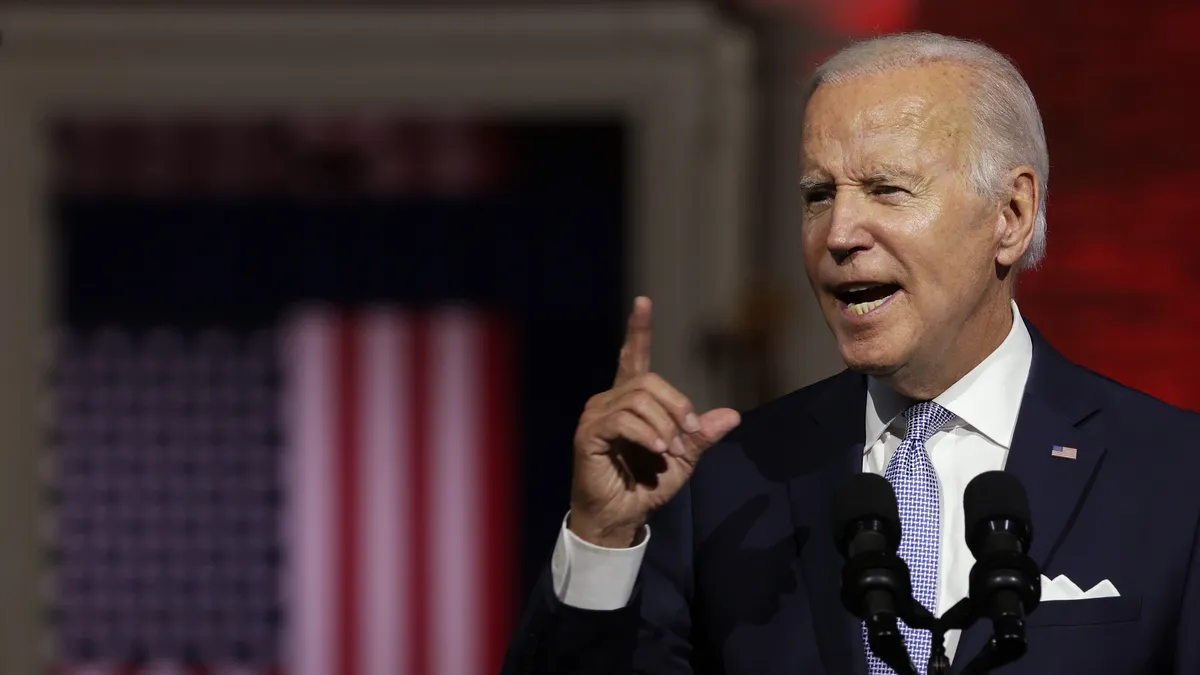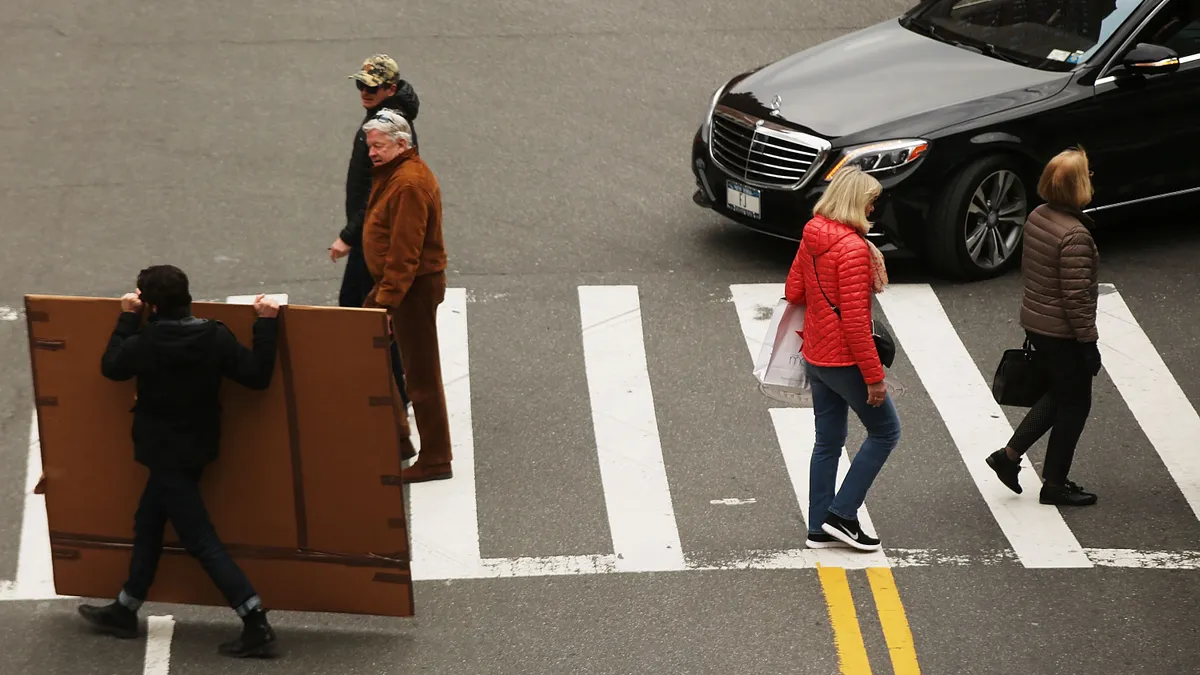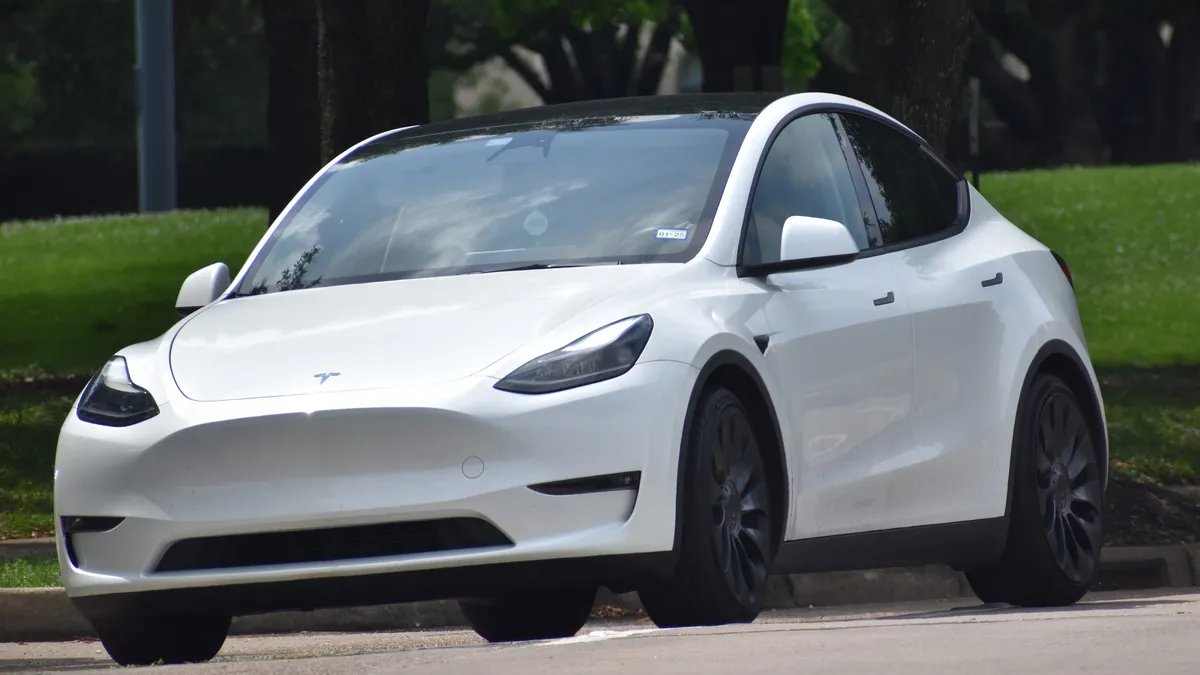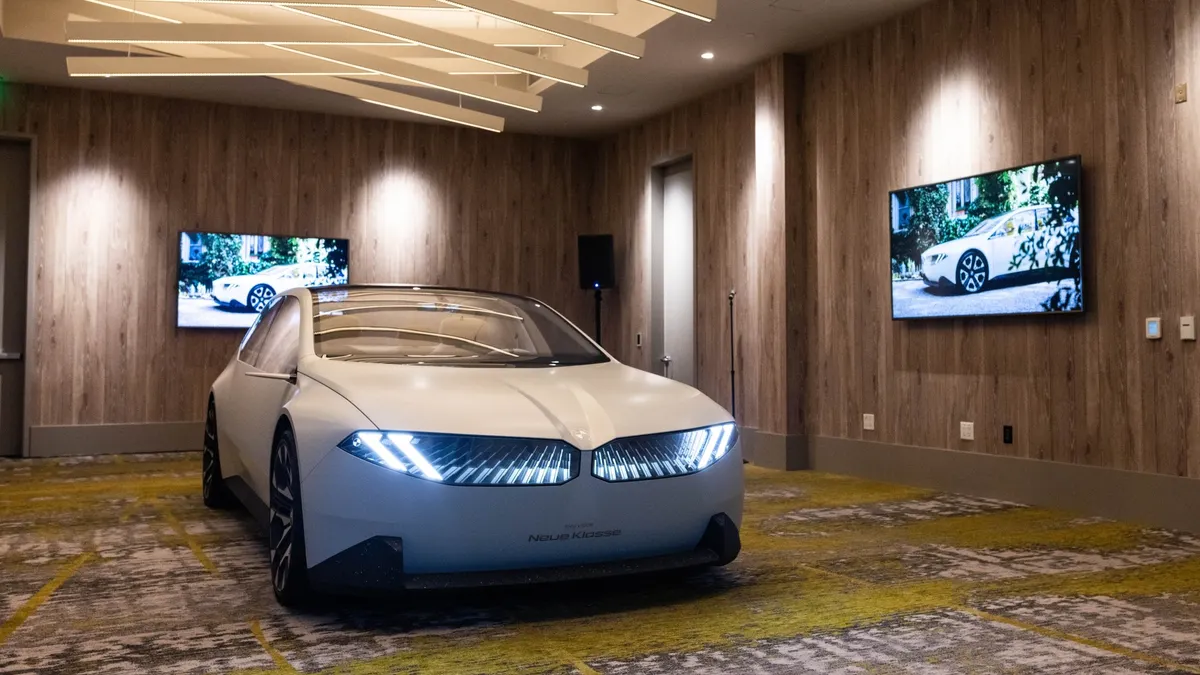The Biden administration announced a slate of tariff increases on key goods made in China on Tuesday, taking aim at electric vehicles, batteries, critical minerals, semiconductors, solar cells and more.
United States Trade Representative Katherine Tai said the USTR would keep existing Section 301 tariffs on China and also increase the import tax in strategic sectors. The White House touted the tariff modifications as a tool to better protect U.S. manufacturers against China's trade practices. The tariffs will cover $18 billion worth of imports in clean energy and technology sectors.
The move goes after hotly contested sectors in which the U.S. is sprinting to get ahead of China's manufacturing prowess — and ones that the Biden administration has poured billions of dollars in federal funding into to bolster factory plans and talent development.
"China’s forced technology transfers and intellectual property theft have contributed to its control of 70, 80, and even 90 percent of global production for the critical inputs necessary for our technologies, infrastructure, energy, and health care — creating unacceptable risks to America’s supply chains and economic security," the White House said Tuesday.
White House tariffs go after China-made semiconductors, EVs
The action from the U.S. Trade Representative most notably increases tariffs on Chinese-produced EVs to 100% this year, up from 25%. It's meant to protect the U.S. market from the rise in Chinese EV exports to the country, which the U.S. says jumped 70% from 2022 to 2023.
The new round of tariffs also includes lithium-ion EV batteries, which are increasing from 7.5% to 25% in 2024. The tariffs on battery parts will increase from 7.5% to 25% in 2024. In addition, the tariff rate on graphite used in batteries and permanent magnets for EV motors will increase from zero to 25% in 2026. The tariff rate for certain other critical minerals will increase from zero to 25% in 2024.
The Biden administration has pushed for companies to onshore not only EV and battery manufacturing, but to bring supply chains for lithium, graphite and other critical minerals closer to home and out of China.
The Inflation Reduction Act and its domestic sourcing requirements have been a key way to do so by limiting the amount of battery components and raw materials that can be procured from “foreign entities of concern,” including China.
“This is a strategic approach to trade policy that will help protect key U.S. industries, like the clean energy and semiconductor sectors,” U.S. Secretary of Commerce Gina Raimondo said in a statement. “We’ve seen their non-market actions on solar and steel – and cannot allow China to undermine U.S. supply chains by flooding the market with artificially cheap products that hurt American businesses and workers.”
Tesla CEO Elon Musk warned during a January earnings call that looming competition from automakers in China could make it increasingly difficult for the company to compete in the EV market. Musk predicted automakers in China could become dominant in the global EV market without tariffs or trade barriers in place.
“Our observation is generally that the Chinese car companies are the most competitive car companies in the world,” Musk said. “I think if there are no trade barriers established, they will pretty much demolish most other car companies in the world.”
China-based automaker BYD has already emerged as one of Tesla’s biggest competitors, surpassing the U.S. automaker as the world’s biggest seller of electric cars in the fourth quarter of 2023 as it eyes global expansion. The company is targeting a 5% share of Europe's electric vehicle market, according to Automotive News..
Along with BYD, other automakers in China are aiming for global expansion and have already entered the European market, including EV makers Xpeng and Nio.
China's Ministry of Commerce immediately pushed back against the tariffs. “The United States should immediately correct its wrongdoing and cancel the additional tariffs imposed on China,” the Ministry said in a translated statement. “China will take resolute measures to defend its rights and interests.”
As part of the tariff plan, Tai will craft an exclusion process for certain machinery used in domestic manufacturing, including 19 exclusions for certain solar manufacturing equipment.
A comment period for the proposed modifications and information regarding an exclusion process is set to open next week.
























